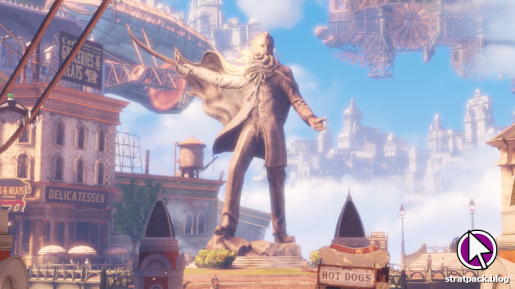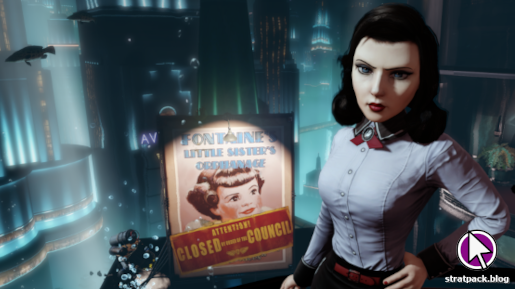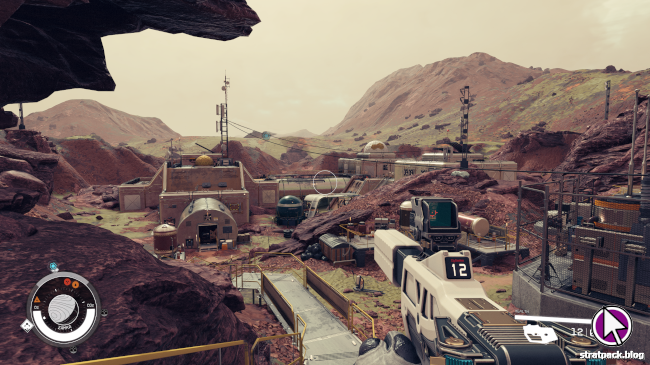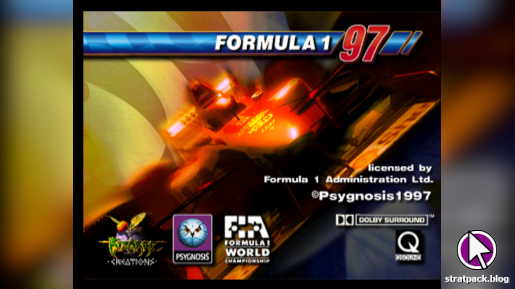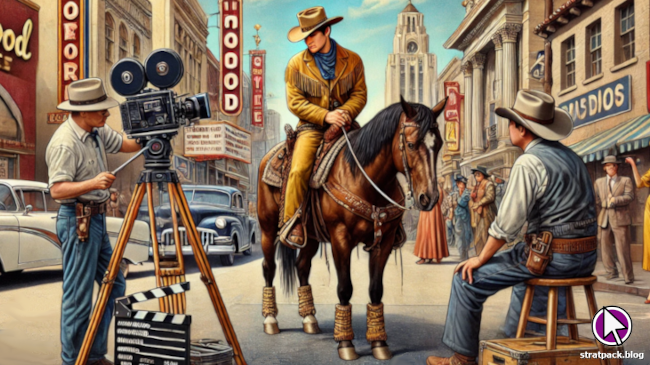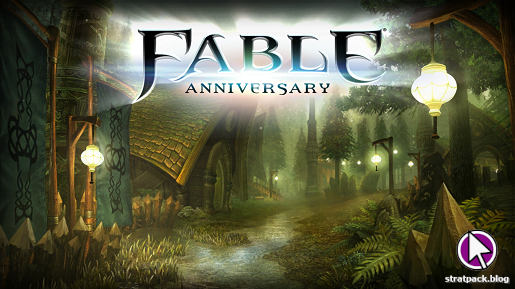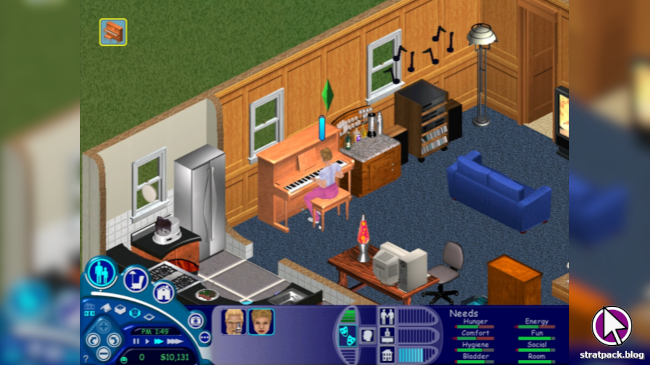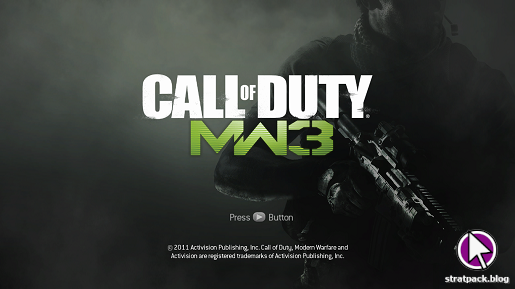
Cities: Skylines II review
Cities: Skylines II is Paradox Interactive’s follow-up to 2015’s Cities: Skylines, a city builder that served as a spiritual successor to SimCity in the aftermath of EA’s 2013 mess. In the following years, the original Cities: Skylines received no fewer than 11 expansion packs, as well as a smaller number of cosmetic add-ons.
At some point, Paradox decided Cities’ systems needed more a more fundamental overhaul, and thus the sequel was delivered in October 2023. The release was plagued by reports of bugs and performance issues, with accusations it was rushed into stores. But it looked enjoyable enough in the footage I saw, and I decided to give it a go when I returned from Austin and had a little more free time to spare.
A brand new toolbox
The premise of Cities: Skylines II is much the same as its predecessors. The player is the founding mayor of a new city on a small plot of land and must keep things running by ensuring vital services are provided while balancing their finances.
It’s obvious that a lot of effort has been put into improving the toolset players use to build their cities. You won’t use any of these more often the road tool, which has been revamped with new features to better handle lanes, crossings, and more. The only frustration is that it’s still hard to find space for supports at complex junctions.
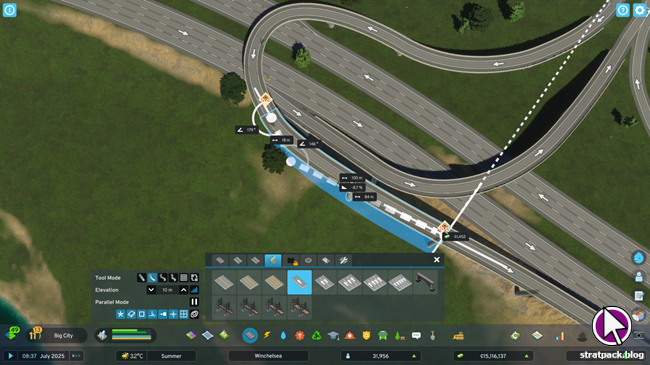
Public transport options have more depth than ever. After building tracks and designing lines, you now can now choose how many vehicles are assigned to each line and set pricing to try to convince the Cims to ditch their cars.
In a departure from the original Cities: Skylines, terraforming is now free. This has received a mixed response online, with some accusations that this was a necessary change due to issues with how building plots look when they sit on slopes, but I quite like being able to build elevated highways and railways without worrying about cost.
Artificial general intelligence
Returning players will be all too aware that in the original game even the best-planned city would eventually collapse under the load of traffic, and all these tools wouldn’t count for much if the beautiful cities they enabled simply ground to a halt.
Fortunately, the traffic simulation has been completely redone. While vehicles used to plot the shortest route from A to B and stick to it, they now seem to actively respond to the traffic around them. This includes better use of lanes, but also opens up the possibility of taking an alternative route if their first choice is congested.
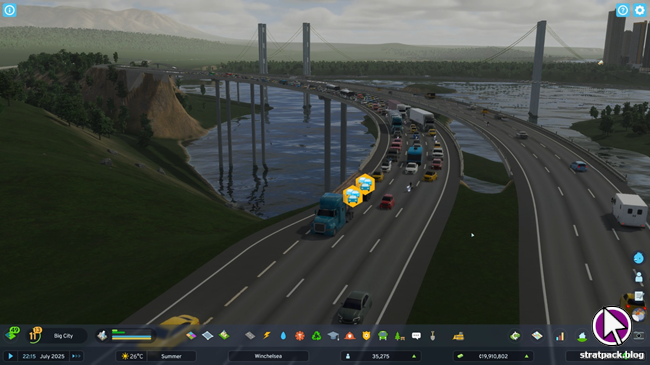
This does not mean that road design is no longer a consideration. If you fail to consider how Cims will use your roads – particularly when zoning new areas that will place additional strain on existing infrastructure – you will encounter traffic jams. The difference is that these both form, and can be resolved, in a natural way.
As a simulation, Cities: Skylines II offers more depth than any previous city builder. In particular, the decision making used by vehicles and pedestrians means that the player must consider traffic flow in a realistic way, rather than second-guessing an ultimately flawed approximation, as in the first game. This enables lifelike solutions to lifelike problems, and leads to a more natural-looking city as the end result.
Cooking the books
However, a true city builder isn’t just about constructing a beautiful virtual model village – the genre is underpinned by management mechanics that require you to run a stable economy while keeping your city’s citizens happy. Unfortunately, this is the area where I found Cities: Skylines II to be the most lacking in its current state.
The equation is the same as it ever was. The population expects basic services (power, water, sanitation, and so on), and running the infrastructure to provide it costs money. The player must balance the books by setting taxation levels for residents and businesses, and selling excess capacity to neighbours.
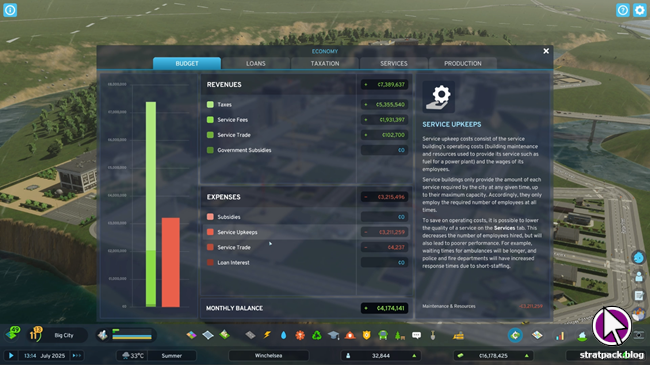
The issue for Cities II as a game is that it seems impossible to lose. On the side of citizens’ happiness, there’s little demand for said services because any delta to your current capacity is outsourced to neighbouring cities. No waste management facilities? No problem – there are already dustbin lorries taking care of it.
Accounting is just as flawed. Early in the game, when my expenditure on services exceeded my tax revenue, I noticed that my monthly budget was still in the green due to “government subsidies” that would mysteriously appear in my income whenever needed to balance things out. More confusingly, my cash balance would often increase even when the budget screen showed I should be losing money.
This makes Cities II feel rather empty as a management game. My only theory is that perhaps Paradox decided the early game was too challenging in testing and tried to smooth out the numbers for inexperienced players. Unfortunately, it now feels like the whole thing is on guardrails, and that you couldn’t fail even if you tried.
Something to build on
Cities: Skylines II is a frustrating game in its current state. The potential of the upgraded tools and AI systems is clear, but there’s little satisfaction to be found in a game that can be played carelessly with minimal risk of failure.
Paradox Interactive appears to have recognised this, along with complaints about the game’s performance, and has suspended the game’s original roadmap to try to address its more fundamental issues. (For the record, Cities: Skylines II was a smooth experience for me until my city reached a high population, and even then, the worst I saw were some frame rate stutters when quickly moving the camera.)
With that in mind, your decision over whether to purchase the game or not will come down to your passion for city builders and your faith in the developer. If you’re anxious to try out the latest in the genre and trust Paradox to build on this foundation then you’ll probably get a lot of fun out of it, but if you’re less fussed then it might be better to wait until the patches have been applied and perhaps even grab a discount.
3/5




